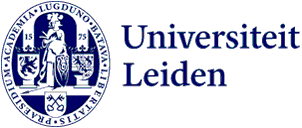
This is what you want to know about the new directors of education Biology as a student
From 1 October onwards, Dennis Claessen and Marcel Schaaf will be the new directors of education of Biology. They will replace Han de Winde. Schaaf will be responsible for the bachelor, while Claessen will mainly focus on the master tracks of Biology. We gave students and the education office the change to ask their most pressing questions.

What does a director of education do?
Schaaf: ‘That is a good question, even though you should ask Han de Winde. He has just completed four years, and did that well. As directors we will coordinate and give structure to education. We already have an incredible bachelor and master, but I think we can improve even further. However, if students still wonder what we do, we should show our faces more often.’
Claessen: ‘I agree. The students are basically our clients, and we want them to be content. We manage the teachers and education office, but want to remain accessible for everybody. Not just be invisible and behind a screen. Partly because of that, we want to continue teaching.’

And are you able to combine that with your role as researcher?
Claessen: ‘I am already doing research for many years. After a while, you get accustomed to it, and then writing a paper takes to hours instead of two weeks. You get more efficient. But I admit that sooner or later additional support is probably needed as well.’
Schaaf: ‘Some things we will have to let go. Our schedules were already completely filled. From my research group I expect that they will become more self-sufficient. And I trust that will work out just fine.’
What is your vision?
Schaaf: ‘We had several meetings to discuss our main target for improving education. We found that it all comes down to two ‘triangles’. The first is the didactial triangle, consisting of learning goals, work methods and testing. All should be coherent. During each course, it should be clear what should be learned, so students won’t be surprised during the exams. Additionally, we want to focus on activity-based learning. Not just sitting around and listening to the lecturer, but working together and experimenting.’
And the second aspect?
Claessen: ‘That will be the organisational triangle, with the students, teachers and the education office. Teachers should primarily focus on teaching, instead of wheter or not they should set up a livestream, for example. In the past year, many improvements have been made, but we can promote this even further. Additionally, all expectations should be clear. What can the education office do for students and teachers? But also vice versa, and we want to create some clear guidelines. Everyone has their own specializations, and it is our job to make the most of their strengths.’
‘We want to pay equal attention to all parts of biology.’
Which course would you like to be registered in yourselves?
Schaaf: ‘I will have to think about that. My mind goes to the courses that I have designed myself. With those, you are looking for things you would have liked to have learned. The microscopy-course for bachelor students comes to mind, which I made with Gerda Lamers and Joost Willemse. That is a unique course in the Netherlands.’
Claessen: ‘I do miss some expertise in statistical analysis. For example, I have never worked with the tool ‘R’, which is used by all my PhD’s. I would very much like to take part in the course of Harald van Mil and Frans Rodenburg, which are the experts on this topic.’
Schaaf: ‘A good suggestion. In some cases, my students are better statistical analysts than me. They have learned modern techniques which we don’t yet know of.’
Claessen: ‘Moreover, it would also be very nice to go along on one of the expeditions of Hans Slabbekoorn. To learn more about bird sounds.’
Schaaf: ‘I do believe you have to rise very early for that, so the birds should adjust their rising hours a little bit for that. But that is also an aspect as new directors of educations which we have to take into account. We have a molecular background, but we want to pay equal attention to all parts of biology.’
To conclude, I final question that the students were very curious about: What is your favourite colour?
Claessen: ‘Blue. And my favourite number is three.’
Schaaf: ‘I did not think about that for over forty years! But my daughter would probably say: “Grey and dark blue, because your only wear clothes of those colours.” So that would be the answer.’
